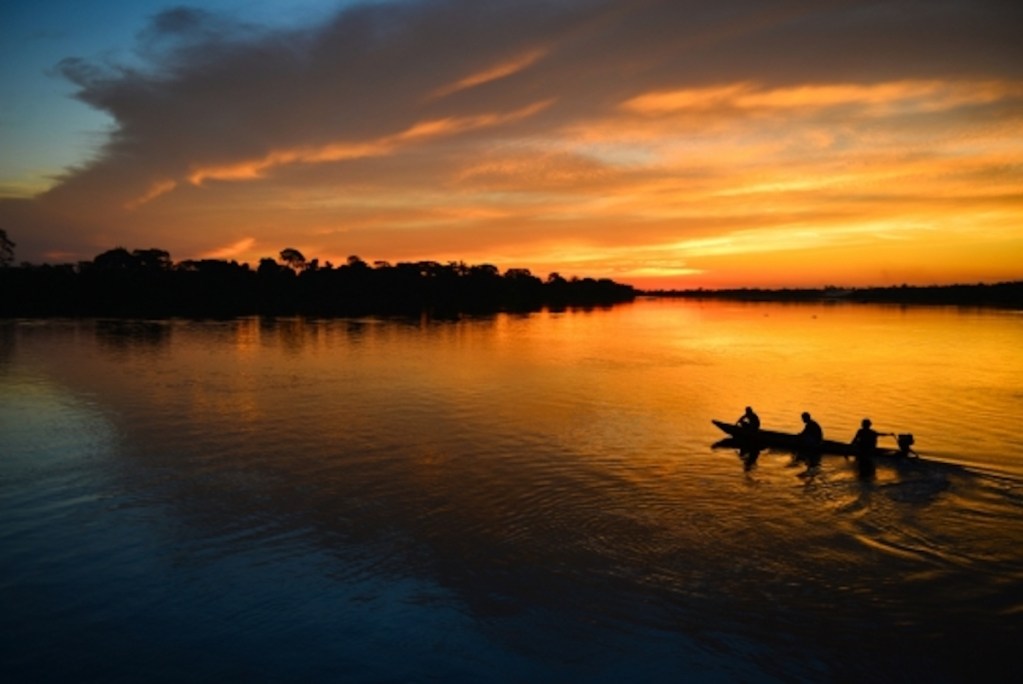This story first appeared at UCSB’s The Current.
The Amazon Basin is a spectacular and dynamic place. Its very name conjures images of verdant jungles, uncontacted tribes and natural splendor. But it also dredges up accounts of destruction, genocide and environmental calamity. Protecting the Amazon has been a priority for environmentalists throughout the world. In the wake of climate change, this issue has never been more pressing.
That said, getting a handle on the social, economic and environmental landscape of this vast area is a real challenge. “It is an enormous area — roughly the size of the continental United States. Nine countries have territory in Amazonia, along with Indigenous territories,” remarked Jeffrey Hoelle, an associate professor in UC Santa Barbara’s Department of Anthropology. “It’s one of the most biodiverse places in the world, and it’s equally culturally diverse.”
Researchers of the region tend to specialize in a certain place or topic. It can be difficult to bring people together — from across different disciplinary and political boundaries — to work toward a deeper collective understanding of the region. But understanding the people and their relationships with a changing environment is key for the future of the Amazon.
The Fulbright Program hopes to make headway on this challenge with its $1 million Amazonia Initiative. The project will bring together Amazonian researchers to conduct collaborative research that aims to foster a healthy and resilient Amazon Basin. Fulbright has selected Hoelle and his colleague Carlos Valério Aguiar Gomes, at Federal University of Pará, Brazil, to lead the initiative.
“This is the first time that a program has brought together different researchers who study or live in the Amazon over an extended period of time,” Hoelle said. “It’s an exciting opportunity to work closely with promising researchers and practitioners in a sustained and collaborative way to gain a holistic understanding of Amazonia, its people and environment. We hope to draw on the successes and lessons from specific places and cases and try to promote more general, policy-relevant applications.”
The initiative is led by the Fulbright Program, the U.S. government’s flagship international educational and cultural exchange program. Famous for its scholarships, Fulbright aims to promote international understanding and collaboration writ large.
“We’ve seen the benefits that grouping a network of professionals can have in specific regions,” said Luiz Valcov Loureiro, the executive director of the Fulbright Commission in Brazil. “We’re hoping to replicate the successes we’ve observed in other similar Fulbright programs, like the Fulbright NEXUS and the Fulbright Arctic Initiative, for example.”
Sign up for Indy Today to receive fresh news from Independent.com, in your inbox, every morning.
The Fulbright Amazonia Initiative will provide 18 months of funding for 16 scholars from across the United States, Brazil and seven other Amazonian nations. Their work will address key research and policy questions to support the integrity of the basin’s ecosystems and the wellbeing of its communities. The call for applications went live Sept. 19.
The program will run from March 2023 through February 2025, culminating with a meeting in Washington D.C. In addition to this, and two in-person meetings in Amazonian cities, Hoelle and Gomes plan to host regular remote sessions with the scholars. They are also working on talks and events that will be open to the public. The scholars from the Amazonian nations will also have the chance to spend up to three months at a U.S. institution where they can work on collaborative projects with American and U.S.-based researchers.
As co-lead scholars, Hoelle and Gomes will guide the initiative’s vision and support the inaugural cohort. “Both Jeff and Valério have a comprehensive understanding of Amazonia in all its dimensions and challenges,” said Loureiro, “showing the potential to manage a multinational team of researchers working towards a common goal.”
Hoelle and Gomes have drawn on their expertise in the region to define the program’s three themes: Climate Change Adaptation and Mitigation, Strengthening Human and Environmental Health and Security, and Bioeconomy and Sustainable Development.
Hoelle said he is excited to join Gomes to lead the initiative; indeed the two applied together in the call for co-lead scholars. The researchers have known each other for 15 years, and Hoelle believes that Gomes’s applied focus complements his own, more academic bent.
“He’s also someone who’s benefitted from a Fulbright fellowship,” Hoelle said. Gomes traveled to the U.S. on a Fulbright scholarship from his small hometown in the Brazilian Amazon Region, ultimately continuing on to get a Ph.D. “Now he’s a professor in the Amazon.”
Loureiro hopes the Fulbright Amazonia Initiative will catalyze great things for the region. “It will bring great brains from different countries together,” he said, “thinking about sustainable solutions for the real problems the communities in the Amazon Basin are facing today.”
Support the Santa Barbara Independent through a long-term or a single contribution.

